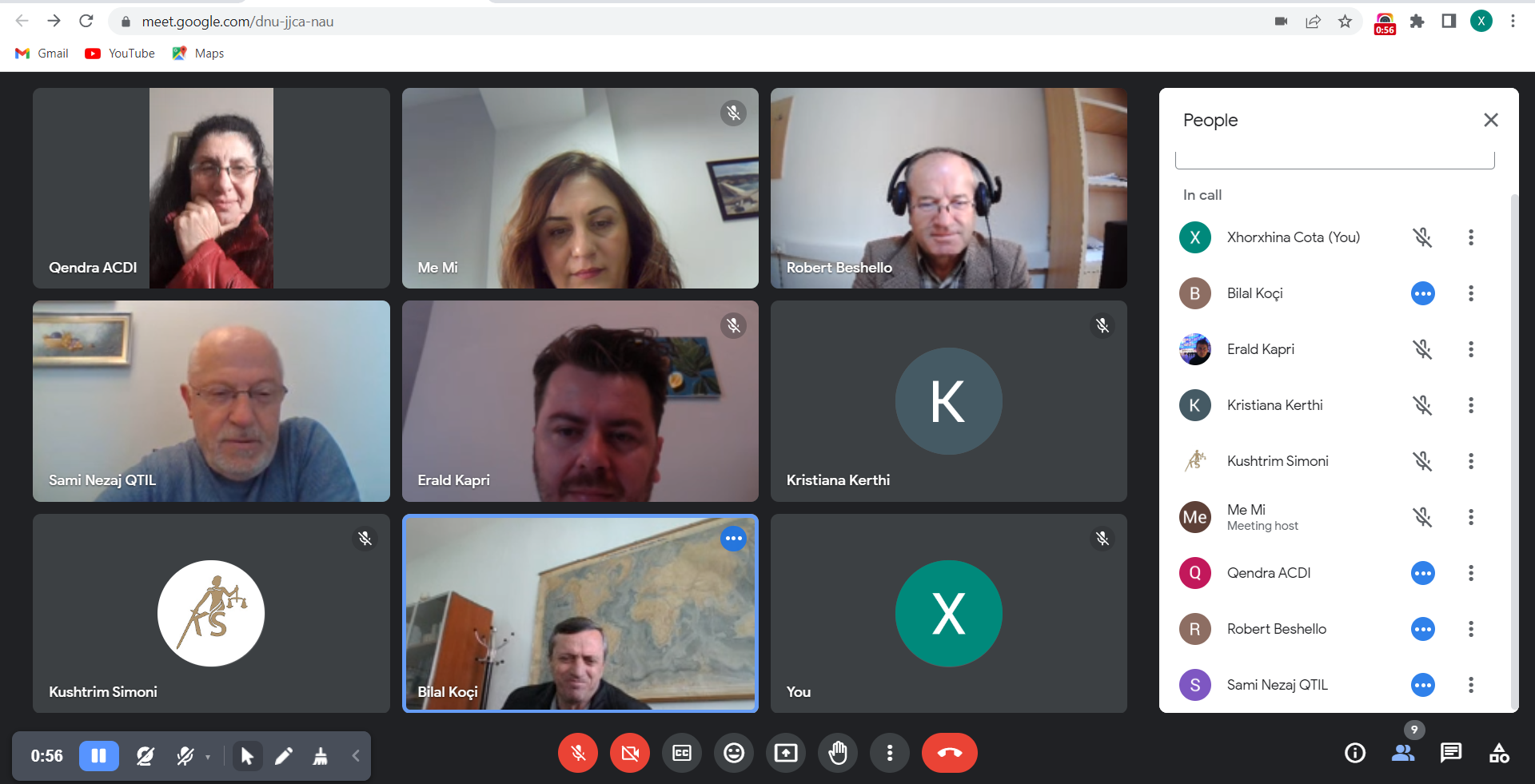Nearly 30% of companies in the extractive industry sector have failed 1-4 times to register beneficial owners before their reporting is approved, the Center for Transparency and Free Information (qTIL) monitoring report on the implementation points out. of the Law on the Register of Beneficial Owners
Nearly 30% of companies in the extractive industry sector have failed 1-4 times to register beneficial owners before their reporting is approved, the Center for Transparency and Free Information (qTIL) monitoring report on the implementation points out. of the Law on the Register of Beneficial Owners
20 companies from the sample of nearly 600 companies in the sector have registered for ownership since the first application, 12 companies have registered after being rejected from 1-4 times, respectively 3 companies rejected from once; 5 companies from 2 times; 3 companies from three times; 1 company 4 times, it was found during the monitoring process of ownership extracts.
Meanwhile, nearly 30% of companies have undeclared ownership, both within the law and in violation of the law.
About 5% of companies are rejected in the statement of beneficial owners. 2 companies have failed to report the beneficial owners, one of them is suspended in the business register, being denied any public service.
The difficulty along the application process but also the problems of ownership have led to the imposition of fines by KKB, which is also the institution that manages the process of declaring the beneficial owners.
The level of registration of subjects is 97%, while 92 fines in the amount of ALL 400,000 have been imposed for the initial non-registration of data. So far, 30 fines have been paid, of which 12 are fines.
62 fines in the amount of ALL 400,000 have been imposed for not reflecting the actual changes in the beneficial owner's income, while 20 fines have been paid, this at the level of businesses in all sectors of the economy.
The government reduced the amount of the fine from 500,000 to 50,000, forgave the fines and postponed the deadline for declaring ownership for almost a year. On March 25, the Council of Ministers approved the normative act for postponing the deadline for declaring the register of beneficial owners. The new deadline was June 30, 2021, from March 31, 2021 that was foreseen in the initial version of the law. The postponement of the deadline came after the demands of the business associations, as this process was encountering numerous difficulties, from the operation of the platform to the technical uncertainties for the beneficial owner of the NPO, the time needed to provide documentation for foreign investors, the identification of foreign companies that are listed on various stock exchanges, but also companies whose beneficial owner is not a natural person, but a foreign state, which were not clearly provided for in the law or in the decisions that made possible the implementation of this law .
However, there has been a lack of business training for the beneficial owner registration procedure. TIL has proposed to further reduce fines for a limited period, until 2026. "Businesses should no longer be stressed by large fines as long as there has been no significant training and the declaration procedure is new, a number of a lot of documents must be provided and ownership practices in Albanian business are often distorted, informal and with complicated structures. Time should be left, but not indefinitely, for businesses to be aware that transparency of ownership helps them to have a safe and supported business", said the director of TIL, Sami Nezaj
The debate on the inclusion of PEP in the law
But if for fines and trainings there is a perspective that unites all parties, both civil society and the government and institutions involved in the extractive industry, that of the definition of PEP in the law "On the Register of Beneficial Owners" has different perspectives.
TIL experts say that an improvement is needed in Article 3 of the law, where it is proposed to include the concept of PEP (politically exposed persons). This change in Article 3 will bring about other changes in several articles of the law as well as making it necessary to issue a regulation related to these types of declarations of the Beneficial Owners.
The Law on "Registration of Beneficial Owners", which was a requirement of the European Moneyval Mechanism in order to combat money laundering, was approved in August 2020, while the instruction regulating its operation, in December 2020.
Anila Hajnaj, director of the civil society network AlbNet EITI, where TIL is a founding member of the network, says that the inclusion of PEP reporting in the law is a requirement of the EITI standards, where Albania has been a member since 2013.
"Requirement 2.5 of the EITI requires precisely that PEPs are included in the ownership declaration law and should be included as such in the entire segment
While the EITI expert, Emiljana Kola says that the Property Declaration Inspectorate itself has an electronic platform that is easy to use.
"The Property Declaration Inspectorate has an electronic platform, easily accessible to declare wealth by officials, as well as enough transparency that anyone interested in this can see the database of this institution", says Kola.
The EITI Secretariat has carried out a validation of Albania in the implementation of the EITI requirements in 2020, focusing among other things on the law on the register for Beneficial Owners.
The implementation of Requirement 2.5 for beneficial ownership has been evaluated in Validation since 1 January 2020 according to the framework agreed by the Board in June 2019. The evaluation consisted of a technical evaluation focusing on the initial criteria and an evaluation of effectiveness.
The Secretariat's preliminary assessment is that Albania has mostly met the objective of requirement 2.5 related to the transparency of beneficial ownership.
By completing this request, the public can know who ultimately owns and controls the companies operating in the country's extractive industries, the secretariat's conclusions say, however, it states that, among other things, there are two points of request 2.5 that have not been fulfilled, the first is related to the treatment of politically exposed persons and the second with the issues of transparency of foreign companies that must provide more information regarding their listing on the stock exchanges, etc.
“While the register includes some information on BOs, it currently does not indicate whether beneficial owners are publicly exposed persons (PEPs) and current legislation does not appear to ensure that all PEPs are shown as BOs for every company, regardless of level their control. The legal ownership of the mining companies has been announced by the KKB", states the EITI secretariat.
The Secretariat has noted the MSG's remark that in case a beneficial owner is a Politically Exposed Person (PEP), the ownership declaration threshold should be reduced to 10%.
KKB does not provide any indication of PEPs, the assessment states.
"PEPs are the object of law no. 9049, dated 10.4.2003, "On the declaration and control of the assets, financial obligations of elected officials and some public employees", and are deposited in the General Directorate of Prevention of Money Laundering. None of the finds or assets declared by this directory appear to be accessible to the public. Furthermore, the comments of the MSG indicated that the High Inspectorate of Declaration and Control of Assets and Conflict of Interest is the sole agency responsible for the investigation and audit of PEPs' files,” notes the secretariat.
TIL has proposed in its recommendations the introduction of the definition of PEP in the law and the obligation of companies with this quality to specify it during the declaration.
It is also proposed that the PEP declaration be reduced to 10% in all business segments registered in the CCA and which have a legal obligation to declare the beneficial owners. A. Bega
"This publication was made possible with the financial support of AMSHC. Its content is the responsibility of the author, the opinion expressed in it is not necessarily the opinion of AMSHC"
Note: However the evaluation by the EITI secretariat in Oslo notes that in accordance with national data privacy laws, the publicly accessible register of beneficial owners does not include the full date of birth (month/year only) nor the residential address of the owner beneficiary, although this is accessible through a special and justified request. The data made public through the registry are full name, nationality, date of designation as beneficial owner, including ownership percentage and whether ownership is direct or indirect. Likewise, foreign-owned and publicly listed companies do not report on which stock exchanges they are listed. Albania does not have a functioning stock exchange, but further verification is needed to determine whether any extractive companies operating in Albania can be publicly traded on international exchanges. Instead, publicly listed companies identify their most senior legal representatives (often executive officers) as beneficial owners. Same
a procedure applies to companies that are unable to identify and report their respective beneficial owners.
Although the law of the Register of Beneficial Owners is still not very popular among journalists, there are some who have examined moments where the difficulty in implementing the law stands out for some types of companies that have state shares but also for other companies that have not made the declaration but which are not exposed by the KKB as such, unless they are followed by administrative measures as provided by the law without affecting the sensitivity of the implementation of the law.
A typical case was the non-registration of the beneficial owners of Air Albania, which is an airline company with state co-ownership. It is believed that there are 1,500 companies that have not made the declaration of beneficial owners until the fall of 2022, according to Tirana media.
Let's face it, some concessions appear with beneficial owners, lawyers or fiscal consultants from Dutch studios and they are the same people who appear as representatives in 100 or more shells, according media in Tirana.














